The 38th Annual AAAI Conference on Artificial Intelligence
February 20-27, 2024 | Vancouver, Canada

Main Conference Timetable for Authors
Note: all deadlines are “anywhere on earth” (UTC-12)
July 4, 2023
AAAI-24 web site open for author registration
July 11, 2023
AAAI-24 web site open for paper submission
August 8, 2023
Abstracts due at 11:59 PM UTC-12
August 15, 2023
Full papers due at 11:59 PM UTC-12
August 18, 2023
Supplementary material and code due by 11:59 PM UTC-12
September 25, 2023
Registration, abstracts and full papers for NeurIPS fast track submissions due by 11:59 PM UTC-12
September 27, 2023
Notification of Phase 1 rejections
September 28, 2023
Supplementary material and code for NeurIPS fast track submissions due by 11:59 PM UTC-12
November 2-5, 2023
Author feedback window
December 9, 2023
Notification of final acceptance or rejection
December 19, 2023
Submission of paper preprints for inclusion in electronic conference materials
February 20 – February 27, 2024
AAAI-24 conference
Review Process
Two-Phase Review Process
AAAI-24 will use a two-phase reviewing process, which will work as follows.
The abstract deadline for AAAI submissions will be August 8, 2023, and the deadline for full paper submissions will be August 15, 2023.
Phase 1:
- Every paper will be allocated two reviewers.
- If a paper receives two reviews that are both sufficiently negative, it will be rejected without any opportunity for author feedback.
- Remaining papers will progress to Phase 2.
Phase 2:
- Each paper will be allocated additional reviewers.
- These reviewers will not be given access to Phase 1 reviews until after submitting their own reviews.
Discussion:
- A single author feedback phase will give authors of papers from Phase 2 an opportunity to comment on all reviews (from both phases), running from November 2-5.
- The program committee and senior program committee will engage in a discussion phase, taking author feedback into account.
Final decisions will be announced on December 8.
Blind Review
AAAI-24 reviews are double blind (i.e., neither reviewers nor authors should be able to identify each other). The first page, on which the paper body begins, should include the title, abstract, content areas, and ID number (if available), but not names or affiliations of the authors. Acknowledgments of funding or assistance should also be omitted. Ensure that no information is included that would identify the authors or their affiliations; papers including such information may be summarily rejected at the discretion of the program chairs.
Submissions should include references to all published literature relevant to the paper. When the authors’ previous work is relevant, they have three options, in descending order of desirability.
- Use the third person, rather than the first person. For example, say “Previously, Hinton et al (2006) showed that…,” rather than “In our previous work (Hinton et al, 2006) we showed that…”.
- Avoid citing previous, unpublished work that would surely identify the authors (e.g., a previous technical report or PhD thesis which substantially overlaps with the current submission); such citations may be added to the camera-ready copy.
- When neither previous option is appropriate, cite as “Anonymous (2019)” to indicate that a citation has been suppressed.
There are two cases where the existence of non-anonymous online material will not be considered a violation of AAAI-24’s blind review policy: it is acceptable for submitted work (1) to appear in a preliminary version as an unrefereed preprint (e.g., on arXiv.org, social media, personal websites) or in any workshop that does not have archival proceedings; or (2) to be discussed in research talks, even if abstracts or videos of such talks are made available online. In such cases, the AAAI-24 submission should not include citations or other pointers to the non-anonymous material and the non-anonymous online material should not reference the fact that the work was submitted to AAAI-24; violations may lead to summary rejection. Reviewers will be instructed not to actively seek out such previous publications or to share knowledge of them with other reviewers but will not be disqualified if they encounter such information.

